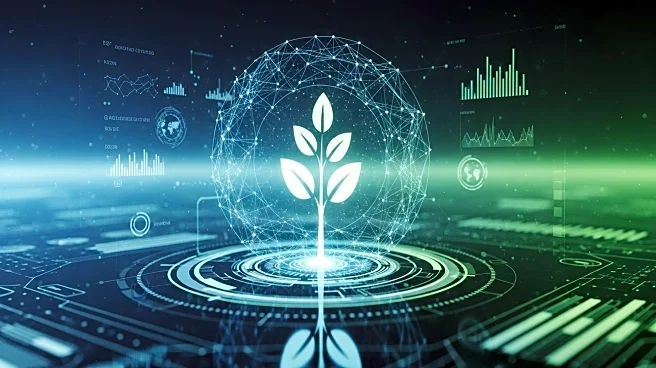What's Happening?
Machine learning (ML) and artificial intelligence (AI) are transforming agricultural forecasting by improving yield predictions, pest management, and harvest timing. These technologies utilize data from satellite imagery, soil conditions, and weather patterns to provide farmers with more accurate forecasts. The integration of deep learning models such as CNNs and LSTMs has shown superior performance in handling large and diverse datasets, enhancing the precision of agricultural predictions. Despite these advancements, challenges remain, including data quality and accessibility for small farmers. Future directions focus on developing explainable AI and tools that are resilient to climate changes and accessible to smallholders.
Why It's Important?
The application of AI in agriculture is crucial for optimizing resource use, reducing waste, and increasing food security. By providing precise forecasts, AI helps farmers make informed decisions about planting, fertilizing, and harvesting, which can lead to higher yields and better quality produce. This technological shift is particularly significant in the face of climate change, as it offers tools to adapt to unpredictable weather patterns. However, the benefits are not evenly distributed, with small farmers facing barriers to accessing these technologies. Addressing these disparities is essential for ensuring that all agricultural stakeholders can benefit from AI advancements.
What's Next?
The continued development of AI tools in agriculture will likely focus on enhancing data quality and accessibility, particularly for small-scale farmers. Efforts to create more explainable AI models will help build trust and understanding among users, facilitating wider adoption. Additionally, as climate change impacts become more pronounced, AI tools will need to evolve to provide resilient solutions that can adapt to changing environmental conditions. Collaboration between technology developers, agricultural experts, and policymakers will be key in driving these advancements and ensuring equitable access to AI benefits.
Beyond the Headlines
The integration of AI in agriculture raises ethical and legal questions about data privacy and ownership, especially as more data is collected from farms. Ensuring that farmers retain control over their data and benefit from its use is a critical consideration. Furthermore, the reliance on AI tools may shift traditional farming practices, potentially impacting cultural aspects of agriculture. As AI becomes more prevalent, it will be important to balance technological innovation with the preservation of agricultural heritage and practices.








